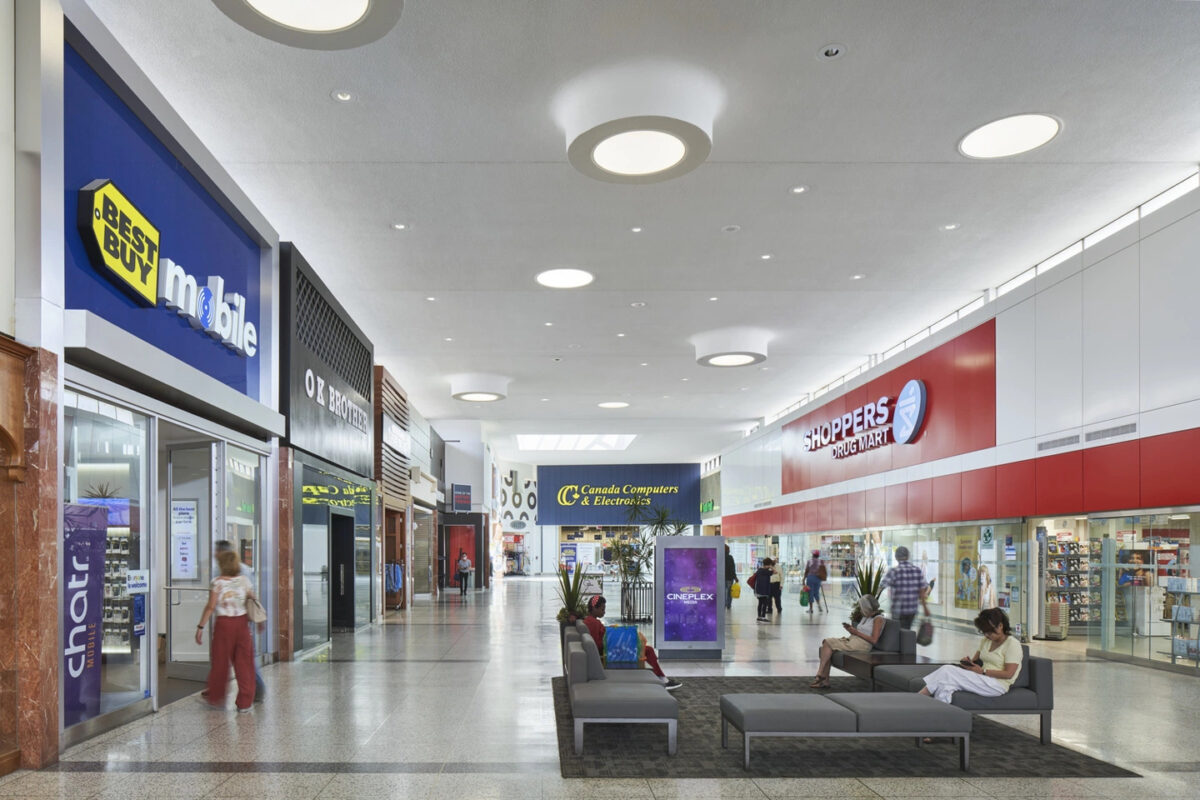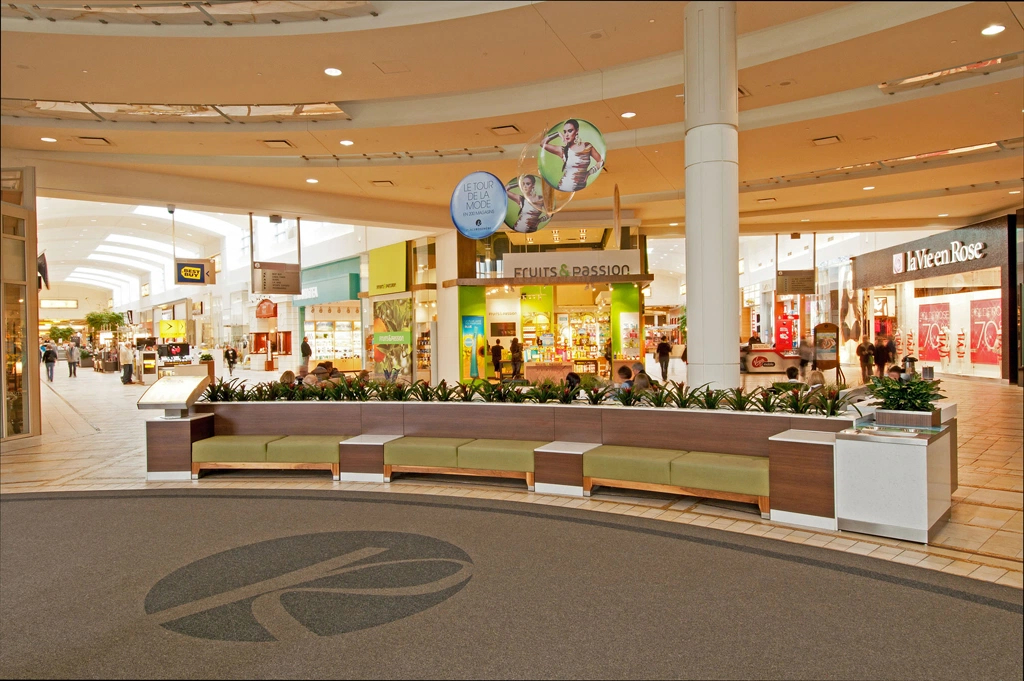Table of Contents
While the weakening of the Canadian economy is growing more apparent each week, the national retail environment isn’t going to give David Wyatt too many sleepless nights.

Wyatt is the senior vice-president of retail at Morguard, which, according to its online portfolio has $4.1 billion in total retail assets among its total ownership pie of $14.7 billion held more specifically by Morguard Corporation ($4.5 billion); Morguard REIT ($2.3 billion); Morguard North American Residential REIT ($4 billion) and Institutional Clients ($3.9 billion).
“There are going to be highs and lows in the economy. It’s cyclical,” Wyatt told Retail Insider in a recent interview covering the company’s current perspective on the national retail situation. Wyatt said Morguard’s grip in the Canadian retail market is wide and deep and their team won’t be “cycling out” of retail real estate based on current conditions — namely rising interest rates, nagging inflation and a slowing national economy.

Instead, they’re paying attention to shifting trends and the effects on shopper behaviour and leasing activity, all while shoring up their national retail portfolio, which includes assets like Burquitlam Plaza in Coquitlam, Crossroads Station Shopping Centre in Winnipeg and The Centre in Saskatoon.
“We have many retail clients… in our long-standing buildings that have been with us for 20 years…or longer,” Wyatt said. “We like developing relationships with (retailers) whether they’re local, regional, or national retailers with the idea that we have more than one property that would suit their needs over their time horizon.”
Morguard is a fully-integrated real estate company that owns, manages and invests in assets across North America. With 45 years in business and a team of 1,300 professionals, Morguard is based in Mississauga and has offices in seven provinces and three U.S. states.
Morguard continues to value smaller markets, Wyatt said, listing cities such as Prince George, Grand Prairie, Brandon, Thunder Bay and North Bay.
Those markets hold potential for growth and renewal. “There have been a number of international and quality national retailers that have reinvested in those markets,” Wyatt said. “We like to think we’re providing more compelling shopping centre experiences in those markets.”
Investments in retail assets ‘muted’

From an investment perspective, retail asset sales have been muted this year, according to Morguard’s second quarter update from its 2023 Canadian Economic Outlook.
Retail asset deal volume in the second quarter of this year neared a three-year low, the report said. “Retail investment property sales with a minimum sale price of $10 million in the combined Vancouver, Calgary, Toronto, Ottawa, and Montreal markets totaled less than $300 million in the second quarter, the lowest dating back to Q2, 2020.”
Morguard blamed a few factors for the slowdown. “The most recent of these was the interest rate hikes the BofC implemented to control inflation,” the report said. “The evolution of consumer shopping behaviour continues to generate the uncertainty that keeps the buyer pool thin. Relatively few significant portfolios or flagship properties have been made available for acquisition recently. Smaller and/or value-add assets with repositioning potential have been brought to market more commonly, amid an environment of relatively muted sales activity.”
Shifting consumer behaviour is part of the equation
Part of the equation is changing consumer behaviour and a shifting interplay between e-commerce and bricks-and-mortar, Wyatt said. “We’re trying to align ourselves with those retailers that are really good at omni channel retailing. We find that, whether they’re local, regional, national, or international, those are the retailers that are paying the most attention to what the marketplaces are telling them.”
Shoppers are spending less time window-shopping or “shopping on foot’, Wyatt said. Instead, consumers are spending more time online educating themselves about products or shopping online. However, trips to the shopping centre today “are more purposeful”, Wyatt said.
Retailer and shopping centre traffic counts are generally lower than pre-pandemic levels, but conversion rates are up, Wyatt said.

Core retail sales, excluding gasoline and fuel sales, and motor vehicles and parts sales, gained 1.3% in July, month-over-month, according to Statistics Canada’s most recent retail report.
StatsCan says total national retail sales rose 0.3 per cent to $66.1 billion in July, helped by the strength of sales of food and beverage. However, the agency said more recent months could see a reversal of those modest gains.
Wyatt said Morguard shares the responsibility with retailers to give shoppers a reason to come out and spend money. “We spend a lot of time trying to figure out how we can integrate food and beverage options, or greater food and beverage options in (our) buildings.”
Morguard is also looking into adding more entertainment options at their shopping centres beyond just cinemas.Wyatt pointed to Activate opening its largest ever location last year at Bramalea City Centre in Brampton as an example.”That was our first deal with that particular (company) and it’s been very well received.” Activate has a series of 11 interactive game rooms where people can play arcade-style games involving jumping, climbing and dodging. The Bramalea City Centre location is 13,000 square feet and features laser lights, glowing walls and high-tech rooms with games like Arena, Hoops, Mega Grid and Climb.
Consumers are getting more discretionary

Consumers though continue to face inflation, declining discretionary budgets and elevated interest rates.
It’s possible that discretionary spending on apparel could recede and there has also been a lot of public and government scrutiny on grocery prices, Wyatt said. “That’s not lost on us when we’re evaluating the marketplace in general.”
Overall, the Canadian retail market has performed relatively well, bouncing back from the pandemic-induced slide, Wyatt said, noting that post-pandemic consumer growth has been taking place at their shopping centres around the country in many categories including apparel, home furnishings, food and drug and specialty items.
Tourism and travel have also returned to strength in Canada’s big cities. “I think the consumer economy has brought the sales back in many or all of our buildings to pre-pandemic levels,” he said. “We’re still not at the same level of leasing, per se, that we were, (and) our occupancy rates are slightly lower than they were pre-pandemic.”
On a short-term basis, Morguard is trying to re-tenant its shopping centres with the types of shops and services consumers are demanding, he said. “We spend a lot of time in our buildings, listening to what our shoppers tell us in terms of what they’d like to see.”

![Landlord Morguard Confident in Canadian Retail as it Keeps Focus on Smaller Markets, Shifting Consumer Trends [Interview] Landlord Morguard Confident in Canadian Retail as it Keeps Focus on Smaller Markets, Shifting Consumer Trends [Interview]](https://retailinsider.b-cdn.net/wp-content/uploads/2023/10/Sevenoaks-Shopping-Centre.jpg)





